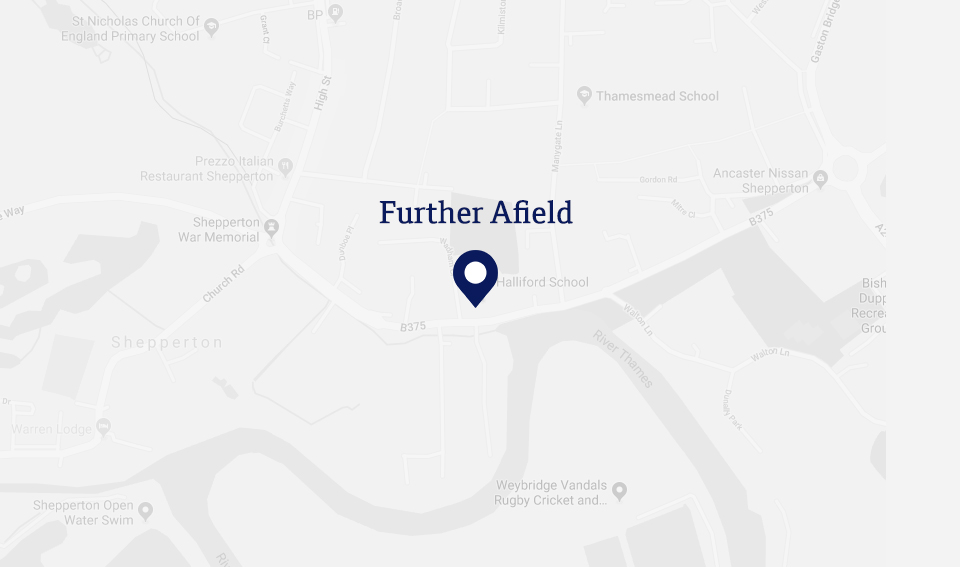Computer Science
Facilities
Benefitting from a recent upgrade, Halliford has state of the art computing facilities. Behind the scenes our servers offer 100% reliability whilst the two teaching classrooms are comfortable and air conditioned. Each classroom has a 65” touchscreen monitor ensuring that no detail is missed.
Years 7-9
Throughout Years &-9, students concentrate their studies in three areas. These are:
- Programming and Computational Thinking – Developing and improving programming skills. Starting with Scratch, which many students will be familiar with from primary school, and moving on to full computer languages such as Visual Basic and Python.
- Business Software – Developing and improving technical skills using the Microsoft suite of software, i.e Excel, Access, Powerpoint, Word and Publisher.
- Creative – Developing and improving creative skills using the Adobe Suite of software i.e. Computer Animation, Graphic Design, Film Making, Website Design
At Key Stage 3, the curriculum is designed to maximise a student’s potential in the subject, preparing those who wish to go on to further studies, signposting career opportunities and developing key skills for future employment and education. Students completing the Key Stage will have developed a good heuristic understanding of the subject and a high level of digital literacy.
GCSE
GCSE Computer Science is offered as an option in Year 10. This comprises two exams, one theoretical and one programming based. In addition students learn/improve their programming skills before spending 20 hours going through the software development cycle. Students study the following:
Paper 1 |
Paper 2 |
| Computer Systems | Algorithms |
| Systems Architecture | Programming techniques |
| Memory | Producing robust programs |
| Storage | Computational logic |
| Wired and wireless networks | Translators and facilities of languages |
| Network topologies, protocols and layers | Data representation |
| System security | |
| System software | |
| Ethical, legal, cultural and environmental Issues |
A Level
Computer Science may be chosen as an A Level in Year 12. Assessment through two exams, one theoretical based and one programming based. Students also complete a software-based development project which accounts for 20% of the qualification. The following topics are studied:
Paper 1 |
Paper 2 |
| The Structure and function of the processor | Thinking abstractly |
| Types of processor | Thinking ahead |
| Input, output and storage | Thinking procedurally |
| Systems Software | Thinking logically |
| Applications Generation | Thinking concurrently |
| Software Development | Programming techniques |
| Types of Programming Language | Computational methods |
| Compression, Encryption and Hashing | |
| Databases | |
| Networks | |
| Web Technologies | |
| Data Types and Structures | |
| Boolean Algebra | |
| Computing related legislation | |
| Moral and ethical Issues |
New Developments
Computer Science is a fast-paced and constantly evolving subject with potentially far reaching implications. It is important that students have a broad understanding of current technological developments as this may affect future career choices or life paths. At Halliford we ensure that each student is prepared for the digital economy by including up to date developments and topical issues within the syllabus. Examples include Artificial Intelligence, Machine Learning, Quantum Computers, Robotics, Cambridge Analytica, Augmented Reality, Job Automation and Driverless Cars.
E-Safety
E-Safety is an essential part of any young person’s education. Whether the topic is cyberbullying, accessing inappropriate web content, or being able to contact strangers, it is covered in the KS3 curriculum, ensuring that students learn how to become responsible digital users. In addition, aspects of the subject are periodically covered in PSHE lessons ensuring that all students continue to improve their knowledge beyond Year 9. Halliford provides a safe and secure learning environment with computer usage supervised, monitored and filtered.
Why Study Computer Science?
Education
- Studying Computer Science improves logical reasoning, analysis and problem solving skills
- Computer Science is an excellent choice for further and higher education
- Computer Science is an excellent support or fall back subject.
- Many future scientific discoveries are likely to be made using computers
- Computer Science graduates have excellent career prospects
Career
- Computer Science is a good career choice
- Computer scientists are in demand and their salaries reflect this
- Once you have a job in Computer Science, it is easy to get another one, to move sideways, or to move into ‘the next big thing’
- Computer Science is a growth area with more jobs being created every day. The highest paid jobs of the next decade probably don’t exist yet.
- However many jobs become automated in the future, there will always be jobs in Computer Science
- Computer Scientists are needed in every type of industry
- Computer Scientists can travel the world with their job
Life
- Computers are all around us and play a significant role in our lives
- Having Digital Literacy is becoming more and more important. It gives access to a lot of products and services that are unavailable, or much harder to access without basic computer literacy.
- The digital age needs Computer Scientists.
Further Study and Employment
There are lots of opportunity for further study in Computer Science and related subjects beyond GCSE and A Level. With new branches of the subject regularly emerging there are lots of courses to choose from. Some are practical based, with emphasis on employment, such as a BTEC in Media, Games and Computing, whilst others are academic such as a BSc in Artificial Intelligence and Robotics. In addition, there are many apprenticeship opportunities that offer ‘on the job’ training leading to certification and employment. A few of the possible fields of study and employment include AI, Robotics, Machine Learning, Augmented Reality, Cyber Security, Network Engineering, Games Design, Computer Animation, Web and App Development, Visual Effects, Software Development, Data Management, Hardware Engineering, Research, Systems Analysis and Project Management.











0 CommentsComment on Facebook